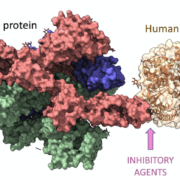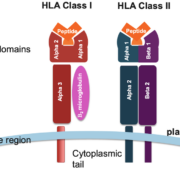Understand How To Best Utilize HLA Typing
HLA typing is a laboratory test used to determine the type of human leukocyte antigen (HLA) that an individual has. HLA are proteins found on the surface of white blood cells, and they play an important role in how our immune system recognizes foreign substances such as bacteria or viruses. Knowing someone’s HLA type can help doctors make decisions about organ transplants, diagnose certain diseases, and understand why some people respond differently to medications than others.
HLA typing is valuable because it helps to determine whether an individual may be a suitable donor for organ and tissue transplantation. HLA typing involves the analysis of genetic markers on white blood cells in order to identify how closely related two individuals are, allowing doctors to assess compatibility between potential donors and recipients. It can also help medical professionals better understand a patient’s risk factors for certain diseases, as well as their response to medications.
HLA typing is most valuable when it comes to diagnosing and treating certain medical conditions, as well as determining organ transplant compatibility. It can be used to identify the presence of specific genetic markers associated with diseases such as lupus, multiple sclerosis, rheumatoid arthritis, and Crohn’s disease. HLA typing also helps doctors understand how a patient may respond to particular medications or treatments for these illnesses. Additionally, this type of testing is essential for matching donors and recipients in successful organ transplants, since mismatched organs are more likely to be rejected by the body’s immune system than those that match closely on an HLA level. Finally, because family members often share similar HLAs due to their shared genetics (known as haplotypes), testing can help determine familial relationships between individuals who have no other means of establishing one through traditional methods like birth records or DNA analysis alone.
There are several flaws in HLA typing. First, most human genetic variation does not fall within the six HLA classifications used for genotyping and immunogenetics. As a result, many individuals who appear to be closely related genetically may actually have very different HLA alleles. Second, certain rare variants of some HLAs can cause severe disease in people with specific immune systems. Third, there is considerable overlap between the sequences of different HLA genes. Thus, it is difficult to identify which particular allele an individual possesses without additional information (such as tissue samples or DNA sequencing). Finally, even if one knows which allele an individual has, that information may not be enough to predict their risk for developing a disease because other factors also play a role in disease susceptibility.
The best way to perform research with HLA typing is to use next-generation sequencing (NGS) as the preferred method. NGS is a high throughput, low-cost technique that enables researchers to quickly and accurately identify genetic variants associated with specific diseases or other phenotypes. It can provide data on multiple alleles in parallel, allowing for an overall assessment of an individual’s entire genome within a single experiment. Additionally, due to its sensitivity and specificity compared to traditional HLA typing methods such as PCR-RFLP analysis, it allows researchers to efficiently evaluate population variation in different immune responses or susceptibilities with improved discriminatory power for validating study results.
Given the growing concern over potential pandemics, immunology researchers need to be very familiar with human leukocyte antigen (HLA) typing. HLA is a type of protein that’s found on the surface of cells in the body. It helps the immune system distinguish between harmful and beneficial bacteria, viruses, and other foreign objects. Immunology researchers need to have accurate HLA typing so they can determine which patients might be at high risk for developing certain diseases.







 The Sequencing Center
The Sequencing Center

Leave a Reply
Want to join the discussion?Feel free to contribute!